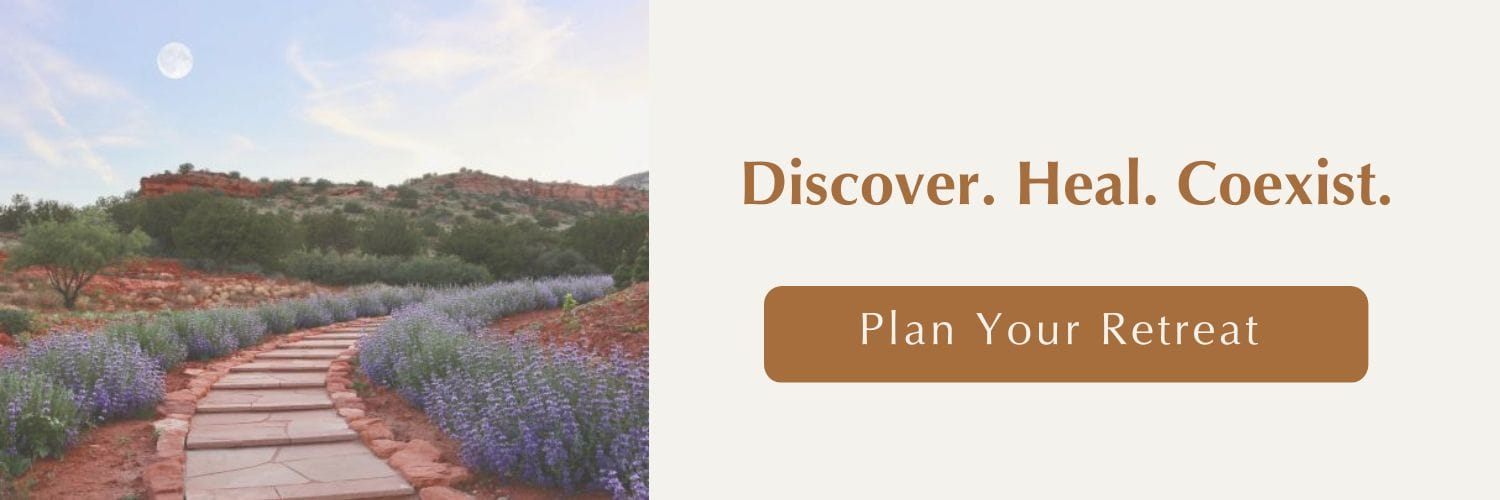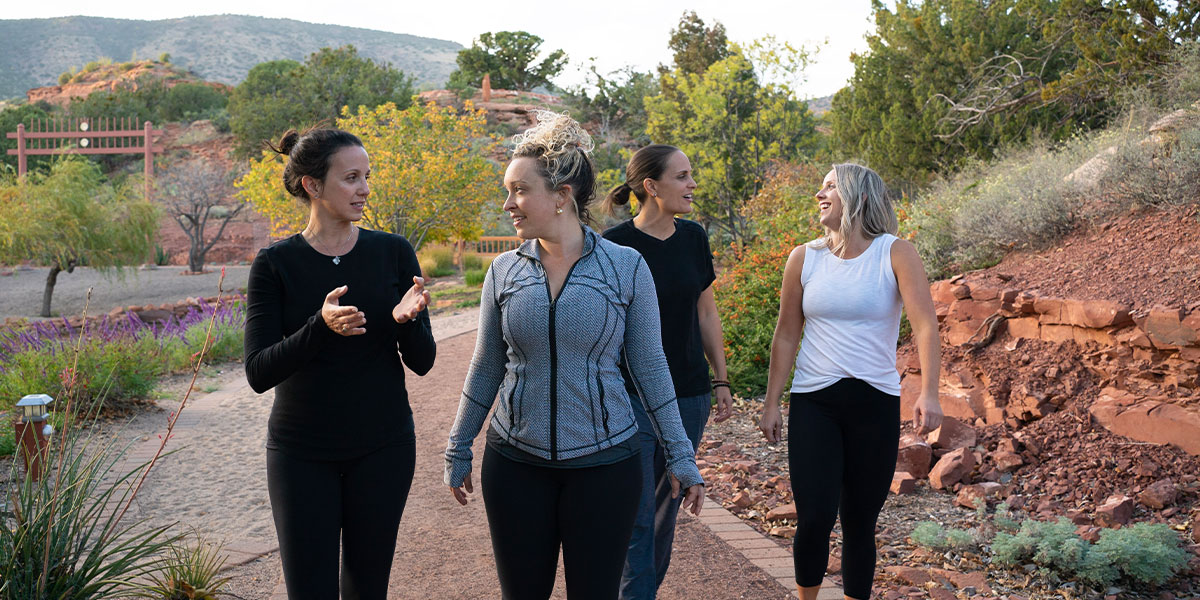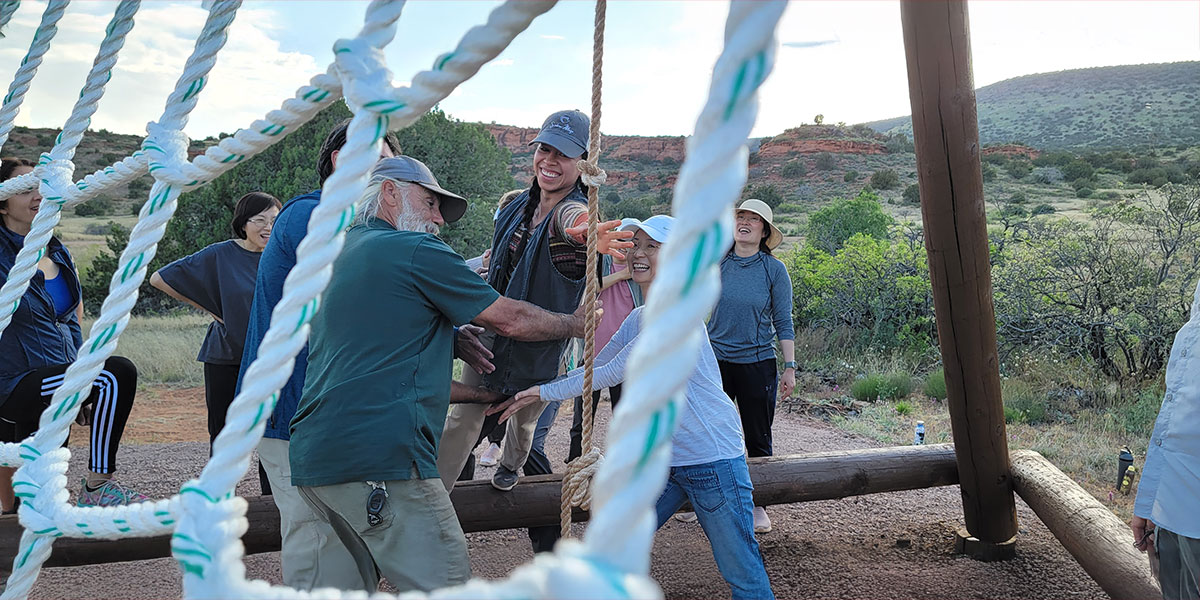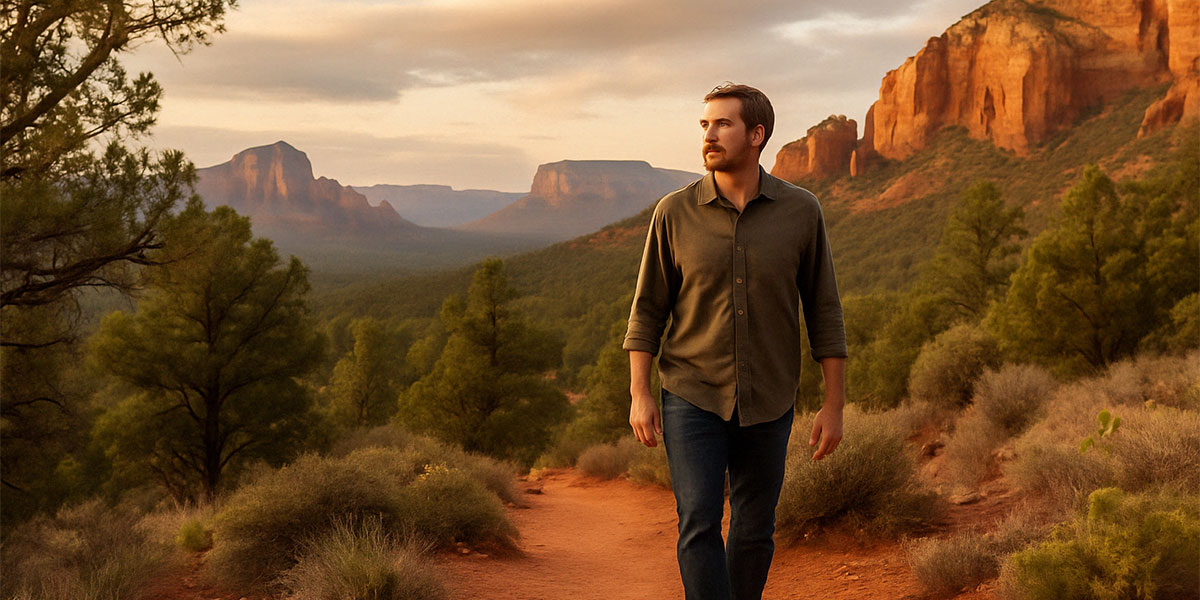How To Choose the Right Retreat for You
Modern life is overwhelming. Between holding down a job, caring for loved ones, and dealing with the stress of a 24/7 news cycle, it’s no wonder everyone wants to take a break.
Going on a retreat is a great way to rest and recharge. With so many options, how can you choose the right retreat for you? We have gathered information so you can learn more about retreats and make an informed decision.
Table of Contents
- What Are the 3 Main Types of Retreats?
- What Type of Retreat Should I Go To?
- 10 Things You Can Do That May Help You Choose the Best Retreat for Your Needs
- Embark on a Transformative Adventure at Sedona Mago Center for Well-Being and Retreat
What Are the 3 Main Types of Retreats?
Every retreat experience is as unique as the person attending. However, most retreats fall into roughly three categories.
#1: Active Retreats
Active retreats are designed around moving your body.
Some examples include pilates, yoga, and Tai Chi retreats. It is important to note that many retreats include physical movement or exercise, but they may also have other elements. One does not preclude the other!
#2: Nature Retreats
Nature retreats are great for city-dwellers looking for relief from the hustle and bustle or for anyone who needs a change of scenery. These retreats may involve certain exercise aspects, such as hiking or canoeing. However, they are primarily designed to allow participants to enjoy the splendor of nature in a relaxed and nurturing setting.
Sedona, Arizona, is especially popular for its nature retreats. Famously beautiful, the red rock landscape is breathtaking. The open sky of the desert fills viewers with peace and wonder. Many believe Sedona to be incredibly healing and spiritual, making it a wonderful location for the Sedona Mago Center for Well-Being and Retreat.
#3: Mindfulness Retreats
The third category of retreats involves retreats that focus on mindfulness. This broad category refers to any retreat that encourages its users to connect spiritually with themselves and take much-needed time to look inward.
In the chaos of today’s world, it is tough to slow down and connect with your body. What does your body need? What do you feel are you lacking?
Mindfulness retreats aim to help you work with your consciousness to connect spiritually. This may be achieved in many ways, including meditation, journaling, and physical movement practices like Tai Chi.
What Type of Retreat Should I Go To?
Active, nature, and mindfulness — rarely do retreats fall into just one category. They are usually a combination of all three, with a unique goal for each attendee. So, how can you choose the best retreat for your needs?
If you are still deciding on a retreat, here are a few elements that may help you find the ideal one.
10 Things You Can Do That May Help You Choose the Best Retreat for Your Needs
Are you looking to go on a retreat? Are you not sure which one is right for you? We have created a step-by-step guide to help you find the perfect retreat for your needs.

#1: Define Your Intent
When beginning your search for the perfect retreat, it is important to outline your intent. That means knowing why you want to go on a retreat and what you hope to achieve. These retreat goals can be things like:
- Rest and relaxation in a beautiful place
- Unplugging from modern life and connecting with your surroundings
- Joining a community of like-minded people
- Expanding or developing skills, such as yoga or meditation
- Exploring spiritual work in a supportive environment
Not sure exactly what you want? That’s okay! Take some time to think about it and form an intention. Even if you only have a vague idea of what you hope to achieve, knowing that ahead of time will assist you in finding the right retreat for you.
#2: Exercise Mindfulness
It is essential to exercise mindfulness when choosing what type of retreat to attend. That means taking the time to consider your motivations, asking yourself what you are looking for and hoping to achieve without the influence of others, and making the decision.
At Sedona Mago, we believe that the answers you need can be found here. If you take the time to consider what retreat you want to attend, you may find the right one for you.
Studies have shown that practicing mindfulness can lead to better decision-making. Here are some examples of mindfulness to use in your own life:
- Start your day with intention. Upon waking, ask yourself your intentions for the day and what you must do to show up as your best self.
- Check in with yourself. Throughout the day, take a moment to connect with your body by identifying how you feel. Are you tired? Sore? Does your body need exercise or water? Are you stressed? Awareness of your body’s needs and wants is a big step toward mindfulness.
- Practice controlled breathing. Take a moment to breathe. Gently push away all outside thoughts and try to clear your mind. Focus on your breath coming in and out of your body.
#3: Talk to Someone You Trust
Mindfulness is all about knowing yourself and what you want. Once you clearly intend what you hope to achieve from a retreat, there is nothing wrong with asking a trusted friend or loved one for an opinion.
Ultimately, it is your decision about what retreat to attend, but a trusted opinion can give you helpful insight. We believe that insight from others can be helpful as long as you are sure your decision is yours alone.
#4: Take a Quiz
If you have taken the time to set your retreat intention with mindfulness, consider taking a quiz to find out what type of retreat you should go to! This quiz can help you make your choice. Here are some tips:
- Approach the quiz with an open mind, and try to view it more as a decisive tool rather than a definitive answer.
- Observe your reactions to the quiz result — are you disappointed? Or are you happy? This reaction will tell you more about what kind of retreat you should choose than your answer.
- Have fun! This process is supposed to be about learning what you want and what makes you happy.
#5: Create a Budget
The results of a retreat are priceless, but you still need a budget to be fiscally responsible.
When considering a budget for your retreat, think about how far you are willing to travel and what means of transportation you’ll need to use to get there. You may also want to consider what food is provided at the retreat and how many nights you want to stay.<
#6: Choose a Location
Location, location, location!
Deciding where you want to travel for your retreat is a huge part of choosing the best retreat for you.
Many retreats boast beautiful locations, some in tropical paradises or the ethereal desert. Those looking for a more spiritual retreat experience may be interested in places with spiritual significance.
Sedona, Arizona, has been a hotbed for spiritual retreats for decades. It is believed to be a place of strong spiritual vortexes, which some claim can assist in meditation and spiritual healing. Its red rocks and clear, open skies are also stunningly beautiful.
Sedona is a place to connect with yourself among the desert landscape, so we chose this location for Sedona Mago.
#7: Find Out When It Is Best To Go
Choosing a retreat to attend is like any other kind of travel. You want to be sure you are going at the best time of year to get the most out of your experience.
For example, many websites claim that the best time to go to Sedona, Arizona, is during the fall and spring, when the weather is the most temperate. However, at Sedona Mago, we are equipped to deal with the summer’s heat and the winter’s desert cold. Many people enjoy traveling to Sedona in the winter for its stark beauty and in the summer for its dramatic monsoon season.
#8: Ask the Right Questions
Knowing what you are getting into is the cornerstone of choosing the type of retreat you should go to. You want to be well-informed about the retreat practices, food, and schedules to make the right choice.
Here are a few questions to ask:
- What does a daily itinerary of the retreat look like?
- What kind of food is provided? If you have specific dietary needs, can they accommodate that?
- What is the sleeping situation like?
- How strict is the schedule? Can you opt out of activities you don’t want to do?
Take note of how the retreat staff answers any questions you have. If they are terse or don’t answer, that may not be the right retreat for you. You are paying for this experience and want one that works for you!
#9: Read Reviews and Testimonials
Like the quiz, online reviews and testimonials are great tools for finding the best retreat for you. Take the time to read reviews on the retreat’s website and seek out reviews from a third-party source when possible.
However, remember that anyone can post a review online, especially on Yelp or Google. Reviews are a great tool, but the choice should be yours.
#10: Trust Your Instincts
At Sedona Mago, we believe that the answers you seek lie within. If you take the time to consider what you want and do your research, you should be able to trust your instincts.
If you find a retreat that checks all your boxes and feels right to you, don’t overthink it. One of the things we teach is the art of reaching your true self so that you can make informed decisions that are best for you.
Embark on a Transformative Experience at Sedona Mago Center for Well-Being and Retreat
Sedona Mago Center for Well-Being and Retreat aims to create an experience about you.
Built around the spiritual essence of Sun Tao, we aim to heighten awareness and connection to one’s self through complete retreats. We aim to help you develop the tools to live a more connected, authentic life.
Our programs have a wide variety of subject matter, some based on physical movement and some based more on spirituality through meditation. Whatever you seek from a retreat can be found here; what you put into it is what you’ll get out of it. To learn more, check out our programs today!
Recent Posts





